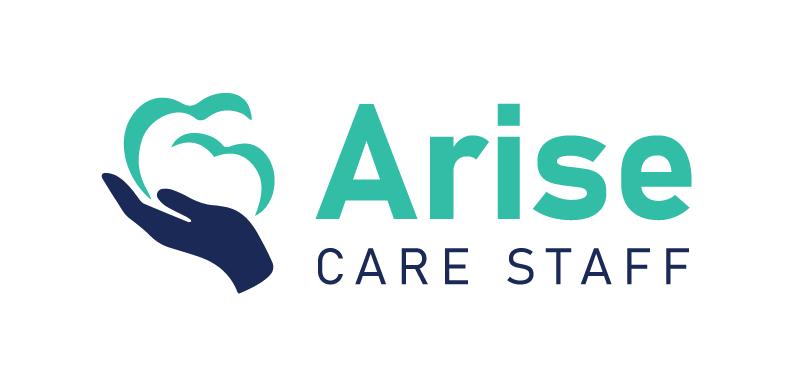10 Strategies to Overcome the Challenges of Healthcare Staff Recruitment
Finding and recruiting the right healthcare staff is a critical challenge faced by healthcare organisations. The competition for talented candidates is fierce, and outdated recruitment programs often fail to attract the best talent. To overcome these challenges, healthcare providers must upgrade their recruitment strategies. In this article, we will explore ten effective strategies to help healthcare organisations overcome the frustrations of finding the right healthcare staff.
1. Emphasise Attractive Benefits Packages
One major challenge in healthcare recruitment is the scarcity of qualified employees. With an ageing population, there is a shortage of doctors and nurses available for new positions. To attract top talent, healthcare employers must offer attractive benefits packages. These packages could include competitive compensation, exceptional signing bonuses, a choice of medical and dental plans, paid sick leave and holidays, disability benefits, improved retirement savings plans, life insurance, and bereavement leave. Additionally, offering extras such as employee assistance programs, free parking options, flexible working schedules, fitness centers, tuition reimbursement, and clear career growth opportunities can make your organisation more appealing to candidates. By providing comprehensive benefits, you can stand out from your competitors and attract the best healthcare professionals.
2. Achieve a Balance Between Experience and Education
In the healthcare industry, there is often a dilemma between hiring highly experienced candidates with lesser degree qualifications or new graduates with prestigious degrees but limited experience. To address this challenge, healthcare providers should strive for a balance between experience and education. By bringing in a mix of experienced professionals and fresh graduates, organisations can create a powerful workforce. Young, academically inclined candidates can bring fresh perspectives and knowledge, while experienced professionals can provide practical insights and mentorship. This combination of skills and expertise can contribute to a well-rounded and high-performing healthcare team.
3. Promote Healthcare Careers to New Graduates
Healthcare organisations often seek to hire new graduates due to their current education, enthusiasm, and energy. However, attracting these candidates can be challenging without excellent benefits packages and superior recruitment strategies. To generate interest among new graduates, healthcare providers should establish relationships with local universities and offer internship programs within their organisations. By providing students with opportunities to gain experience and exposure to the healthcare industry, organisations can build relationships with potential candidates early on. When these candidates enter the job market, they may already have a positive perception of your organisation, making them more likely to choose you as their employer.
4. Streamline the Onboarding Process
Once healthcare professionals are recruited, it is important to integrate them into the organisation effectively. Many healthcare providers have complex organisational structures, which can be difficult for new employees to navigate. To ensure a smooth onboarding process, it is essential to establish consistent onboarding practices across all departments. This can be achieved by centralising HR records and protocols and using cloud-based recruiting software. These software solutions enable automatic capture of candidate interactions, boost productivity, provide actionable insights, and assist with applicant tracking. By streamlining the onboarding process, healthcare organisations can reduce confusion, save time, and create a positive experience for new hires.
5. Optimise the Screening Process
Healthcare professionals often undergo various tests as part of the screening process. While it is important to thoroughly evaluate candidates, lengthy and tedious tests can frustrate potential hires. To overcome this challenge, healthcare providers should assess their screening processes and make them more concise and user-friendly. Providing candidates with insight into the screening process and their status can also reduce frustration. Transparent communication and user-friendly tests can contribute to a positive candidate experience and attract top talent.
6. Build and Maintain Relationships
Building and maintaining relationships with candidates is crucial in healthcare recruitment. Even if a candidate does not accept a job offer initially, staying connected with them can yield future opportunities. Healthcare organisations should maintain contact with candidates and keep them updated on new positions or developments within the organisation. Additionally, previous candidates may know qualified professionals who could be a good fit for future roles. By nurturing relationships with candidates, healthcare providers can expand their talent pool and enhance their recruitment efforts.
7. Enhance Your Organisation's Brand and Reputation
The brand and reputation of a healthcare organisation play a significant role in attracting and retaining talent. Candidates are more likely to apply and accept job offers from organisations with positive reputations. To enhance your organisation's brand, ensure that you have a professional website and a strong social media presence. Craft compelling job listings that accurately represent your organisation's culture and values. Additionally, monitor and manage your online presence, including patient reviews and interactions. By actively managing your brand and reputation, you can create a positive impression and attract top candidates.
8. Allocate Time for Recruitment or Seek External Help
Recruiting the right healthcare staff requires dedicated time and effort. Allocating specific time slots for recruitment-related activities can ensure that the process receives the attention it deserves. Consider setting aside an hour each day to focus on recruiting activities such as reviewing resumes, conducting interviews, and networking. If managing the recruitment process becomes overwhelming, consider involving other staff members or seeking external help. Your team can assist with tasks such as resume screening or participating in the interview process. Alternatively, reputable recruiters or recruitment firms can provide valuable support in sourcing and selecting qualified candidates.
9. Assess Soft Skills during the Interview Process
In addition to technical and clinical expertise, soft skills are crucial for success in healthcare roles. Soft skills include integrity, effective communication, teamwork, problem-solving, adaptability, and empathy. When interviewing candidates, consider asking questions that assess these soft skills. It is important to gauge how candidates would handle common work situations, demonstrate teamwork, and communicate effectively. Conducting group conversations or team outings can also provide insights into candidates' ability to work well with others. By assessing soft skills during the interview process, healthcare organisations can ensure they hire candidates who possess the necessary interpersonal qualities for success.
10. Embrace Modern Technology and Work Environments
A modernised work environment and technology can attract and retain healthcare staff. Outdated systems and processes can contribute to inefficiencies, bottlenecks, and burnout. Investing in all-in-one solutions that streamline communication, patient management, and administrative tasks can improve efficiency and employee satisfaction. By adopting modern electronic health records (EHR) and practice management technology, healthcare organisations can create a more appealing work environment. These technologies can enhance staff communication, reduce administrative burdens, and enable healthcare professionals to focus on delivering quality patient care.
In conclusion, overcoming the challenges of healthcare staff recruitment requires a comprehensive and strategic approach. By emphasising attractive benefits packages, balancing experience and education, promoting healthcare careers to new graduates, streamlining the onboarding process, optimising the screening process, building and maintaining relationships, enhancing the organisation's brand and reputation, allocating time for recruitment or seeking external help, assessing soft skills during the interview process, and embracing modern technology and work environments, healthcare providers can attract and retain the right talent. By implementing these strategies, organisations can overcome the frustrations of healthcare staff recruitment and build high-performing teams that deliver exceptional patient care.











